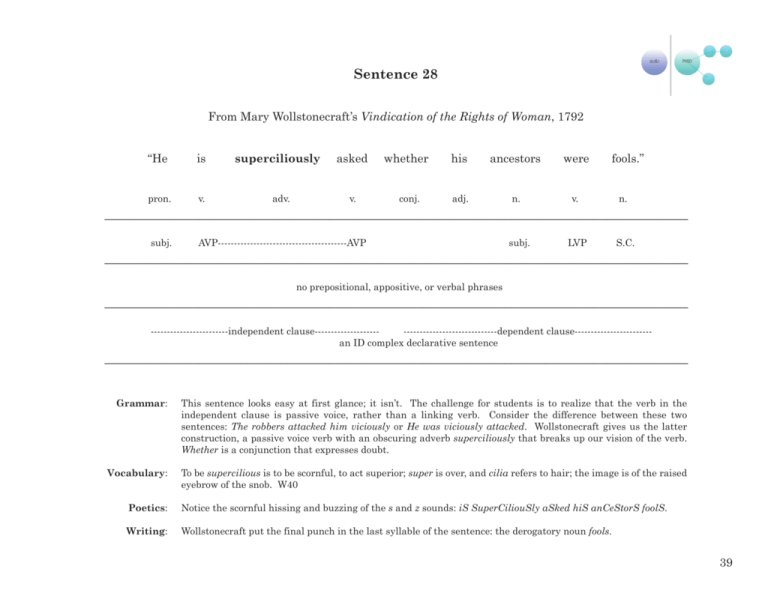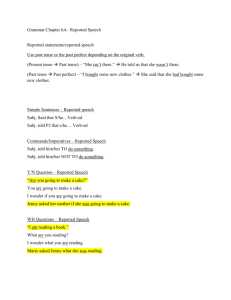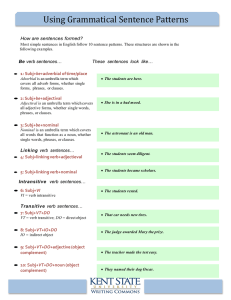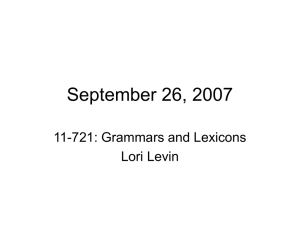Sentence 28
advertisement

n o acti SUBJ PRED Sentence 28 D.O. I.O. link ing S.C. From Mary Wollstonecraft’s Vindication of the Rights of Woman, 1792 “He is pron. v. superciliously adv. asked v. whether conj. his ancestors were adj. n. v. fools.” n. ______________________________________________________________________________________ subj. AVP----------------------------------------AVP subj. LVP S.C. ______________________________________________________________________________________ no prepositional, appositive, or verbal phrases ______________________________________________________________________________________ ------------------------independent clause------------------------------------------------dependent clause-----------------------an ID complex declarative sentence ______________________________________________________________________________________ Grammar: This sentence looks easy at first glance; it isn’t. The challenge for students is to realize that the verb in the independent clause is passive voice, rather than a linking verb. Consider the difference between these two sentences: The robbers attacked him viciously or He was viciously attacked. Wollstonecraft gives us the latter construction, a passive voice verb with an obscuring adverb superciliously that breaks up our vision of the verb. Whether is a conjunction that expresses doubt. Vocabulary: To be supercilious is to be scornful, to act superior; super is over, and cilia refers to hair; the image is of the raised eyebrow of the snob. W40 Poetics: Notice the scornful hissing and buzzing of the s and z sounds: iS SuperCiliouSly aSked hiS anCeStorS foolS. Writing: Wollstonecraft put the final punch in the last syllable of the sentence: the derogatory noun fools. 39











